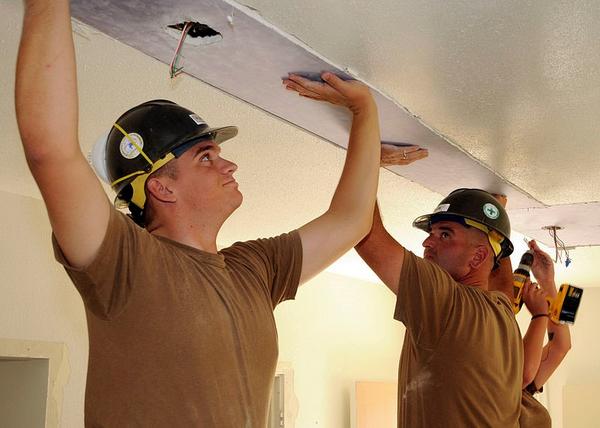Home Renovations: 5 Important Steps you May Have Forgotten
14 January 2016

January is the ideal time for renovating your home in Western Australia
January is a popular month for renovations in Western Australia with the summer weather making work easier and many people taking extra time off after Christmas. This gives many the time and motivation to make improvements to the home.
However, good preparation is the key to success. There are a number of things you need to consider before you start on the renovating work, some of which you may not have thought about.
Have you drawn up a project plan/budget? Thought about safety?
The success (or otherwise) of bringing your renovation project in under budget and within the designated time may depend on the project plan. Whether the renovating work is being done by your family and friends, or if you employ a team of tradespeople to do the work, planning and scheduling the project is essential.
Break down each project into separate tasks in your plan as this will help with management of the renovation and make it a great deal more attainable. Included in this should be allocation of the correct safety equipment for each step.
Drawing up a detailed budget is also important to ensure each step of the renovation comes in under the allocated amount.
Have you hired a skip?
An often overlooked step is hiring a skip for the inevitable waste that will be generated. Many people don’t think of this one until the household bins fill up and the waste wood and rubble piles start to build up in the yard or on the verge.
Hiring a skip for your home renovation should be one of the first items on the renovating project list. Look for a quality, experienced and reliable skip hire company (like us!) with a range of skip sizes to suit your needs. You should also try to go with one that has a waste recovery facility where they will sort and recycle any waste they can before bringing the remainder to the landfill as this keeps the cost and your carbon footprint down!
Remember too that major additions to the home might require a waste management plan to be provided in order to obtain local government planning approval.
Do the research on the house
This is less of a problem if the renovations are just cosmetic changes. However, for structural changes, load bearing walls needs to be located. You will also need to be aware of where electrical cables are in the walls and, in older homes, whether there is any danger of asbestos being disturbed. Unless you have some expertise in building, it is advisable to call a professional to oversee and undertake any structural work.
Organise a dilapidation report/inspection
Disputes can sometimes occur over damage to neighbouring houses caused by renovations. A handy hint is to take photographs of your house and that of your neighbours (a dilapidation inspection) to protect yourself against any claims of damage caused by the work. Depending on the extent of the renovations, many councils require a professional dilapidation report to be undertaken before the work can commence. This can be acquired through reputable building companies.
What permission do you need?
Local government authorities in Perth and WA often differ on permission required to do a range of renovations. Usually cosmetic changes, painting, sanding etc. won’t require special council permission. However, larger projects will. This holds true specifically in cases where gas, electricity, plumbing and drainage services are to be altered as a result and where the work will have an impact on your neighbours. It is always advisable to contact your council first to find out whether or not permission is required and factor the time taken for this approval to be delivered.









